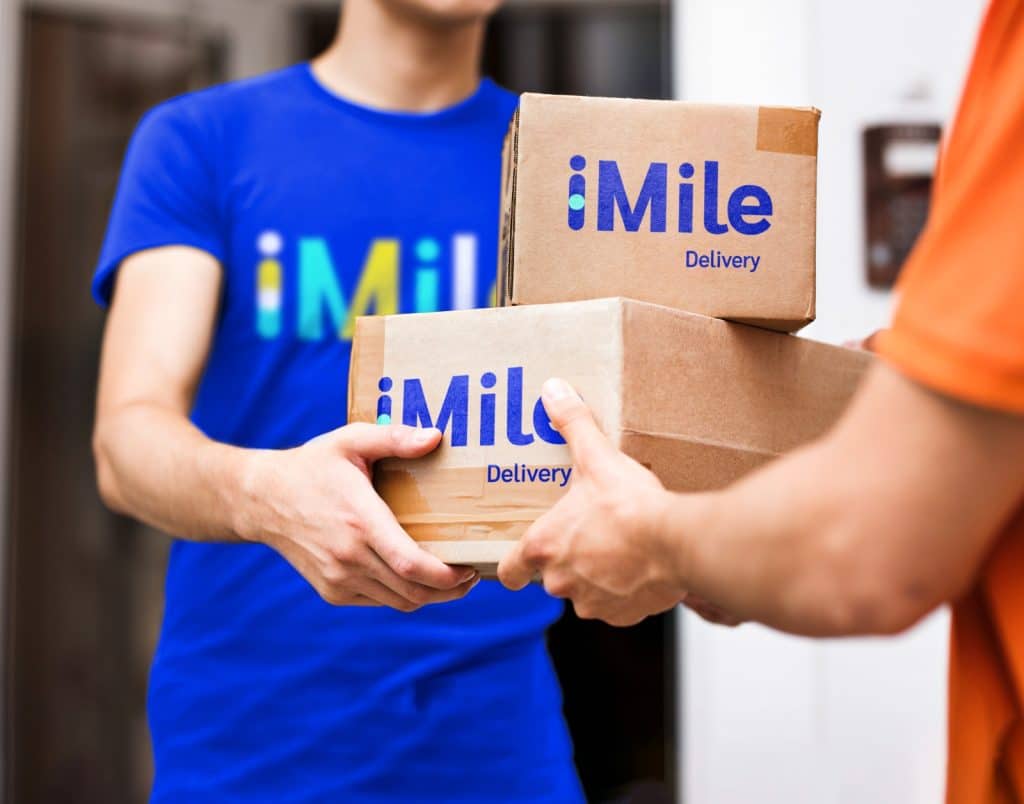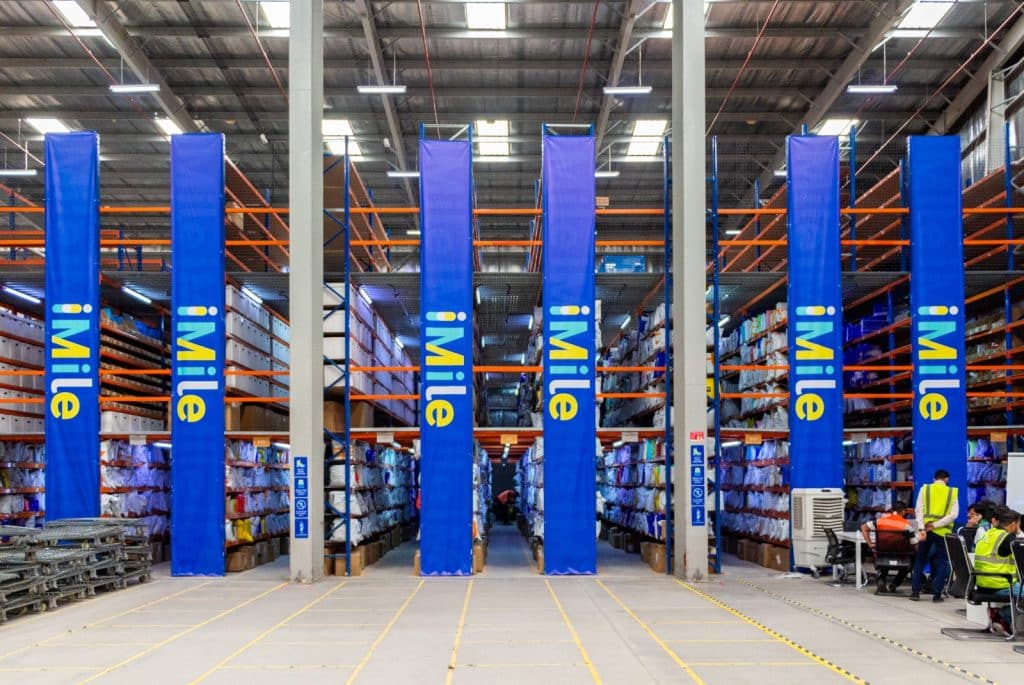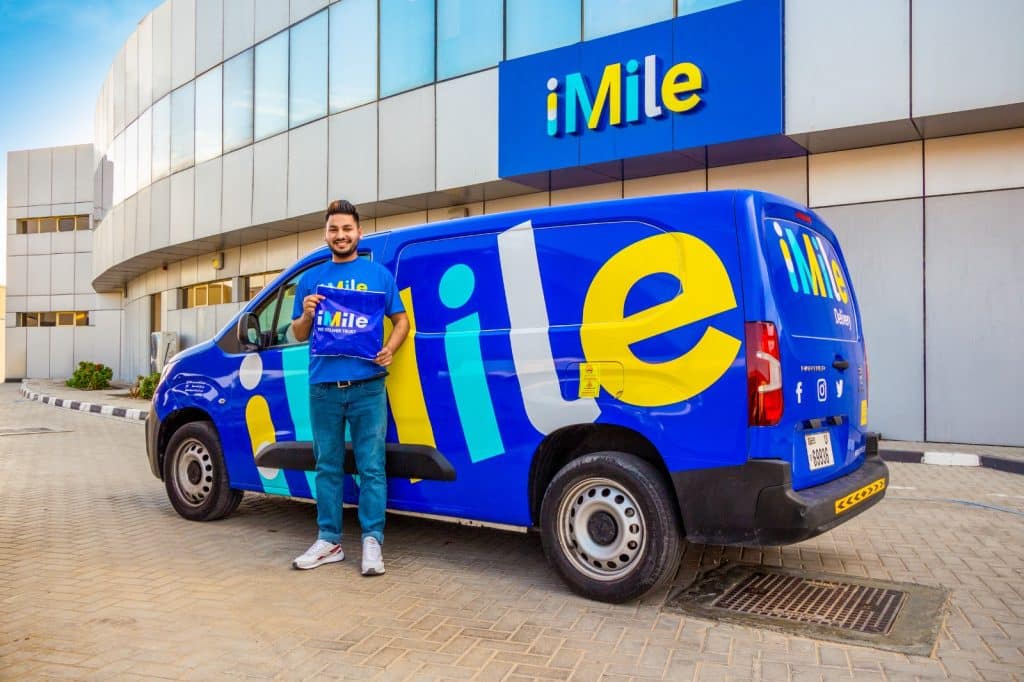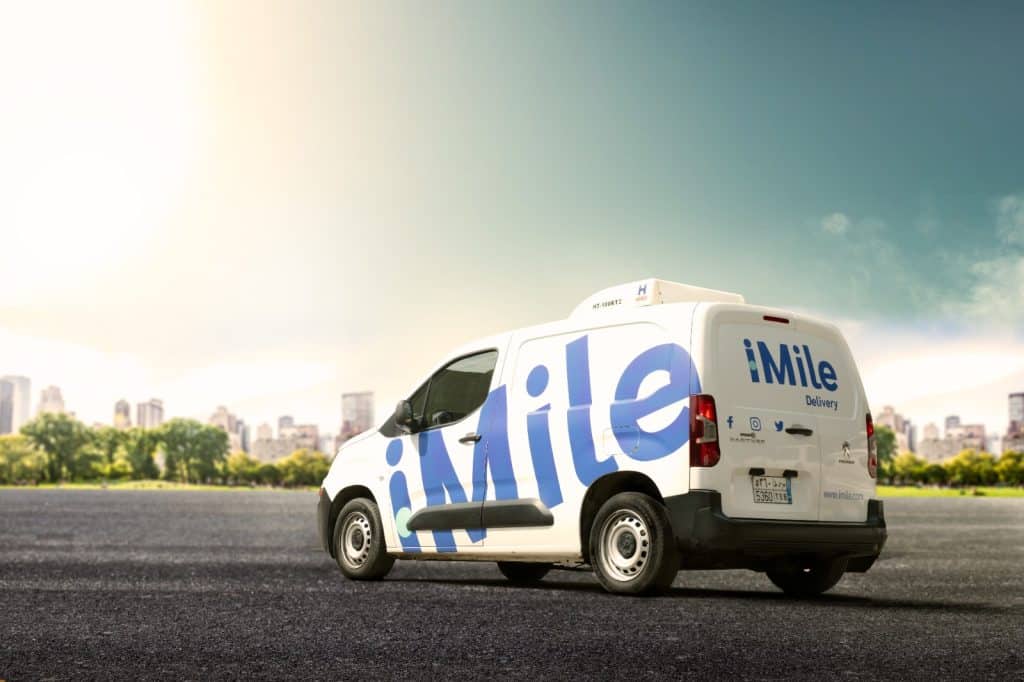Amar Rizvi, Chief Strategy Officer at iMile Delivery, speaks to Vibha Mehta on how the company is implementing strategies for last-mile delivery success…
Amar Rizvi, CSO at iMile Delivery, brings a wealth of experience from investment banking and strategic advisory roles. With over 20 years in global investment banking, including positions at Citi and Bank of America, he has advised clients across Europe, the Middle East, and Africa. At iMile Delivery, he leads strategic initiatives to drive innovation and growth, leveraging his expertise in mergers and acquisitions, strategy development, and capital optimization. His commitment to excellence and strategic planning makes him a valuable asset to iMile, positioning the company for industry leadership and success.
iMile Delivery emerged from Rita Huang’s entrepreneurial vision and desire to address a gap in the Middle Eastern delivery experience, particularly in Dubai. Founded in 2017, Rita recognized the opportunity to improve delivery services based on her experiences in different parts of the world. Operating initially from a small villa in Jumeirah, Rita was hands-on, handling deliveries and customer inquiries herself.

“E-commerce industry is a booming sector,” says Amar Rizvi, Chief Strategy Officer at iMile Delivery. He continues, “The pandemic had a significant role to play in that. But all the pandemic did was expedite and accelerate the boom that was already taking place. And this region is no different.” Due to the region’s macroeconomic growth and booming e-commerce sector, delivery companies like iMile had a vital role to play. While the Middle East remains their cornerstone, they have expanded into new markets, such as Latin America and ventured into additional regions last year. UAE and Saudi Arabia are their primary markets, and they aim to grow alongside the market’s expansion.
Expansion is crucial across all industries, and one has noticed firsthand that digital transformation is pivotal within this realm. According to Amar, technology is omnipresent nowadays; it’s not exclusive to certain companies or sectors, and they are no exception to that. However, when people consider technology in the delivery or last-mile space, they often think of autonomous vehicles, drones, and robots. “Those innovations are fantastic. And their time will come. But fundamental technology is more important than anything else for a company like ours,” explains Amar. Ensuring the successful handling of hundreds of thousands or even millions of global deliveries each day requires a robust, scalable, and adaptable tech platform. Without it, managing such high volumes, tracking deliveries, and meeting client commitments would be impossible. iMile’s technology foundation is paramount, built entirely in-house from A to Z. This approach is one of their core strengths, supported by over 200 R&D engineers dedicated to its development and maintenance.

Amar emphasizes, “In addition to our core platform, we have also integrated other technologies such as geofencing and route optimization. These tools are crucial for ensuring cost-efficiency and upholding the high service and delivery standards we aim for. Technology remains at the forefront of our operations in every aspect.” Additionally, the company acknowledges the potential of emerging technologies like electric vehicles and drones but emphasizes that its primary focus remains on ensuring the scalability and adaptability of its platform. This commitment was tested during the COVID-19 pandemic, where unforeseen surges in volumes and supply chain disruptions occurred. Despite these challenges, the platform successfully managed the increased demands without encountering any major issues. During periods of unexpected high volumes and supply chain disruptions, the platform had to effectively manage the increased demands despite not being entirely accurately forecasted. Amar shares, “Touchwood, we could stay through that period without any hiccups.”
However, there’s an ongoing contemplation regarding whether innovation inevitably leads to disruption. In this regard, Amar believes that the two are closely intertwined, with innovation often paving the way for disruption. Amar notes that the company was established with a vision of improvement, recognizing unique challenges in the region that may not be present in other markets. In the region, there’s a need for a more formalized address system, which is currently lacking in many areas. This poses specific challenges, especially for delivery services, as the lack of standardized addresses makes it difficult for delivery personnel to locate recipients. In addition, the prevalence of cash-on-delivery transactions further complicates the process. While technology exists to address these issues, cultural preferences for cash payments present barriers to adoption.

Yet, innovative solutions have the potential to disrupt the market and improve the customer experience. Amar continues, “Despite us going through the pandemic, this market is still 30 to 50% cash on delivery. So, if the pandemic doesn’t end, it will go away eventually, but it’s not going away anytime soon. As I said, it’s not due to a lack of technology access. It’s cultural, and those things take time.”
Moving forward, certain psychological factors will surface in the last-mile industry. The prevalent shopping behaviour in the region entails a preference for cash-on-delivery, which iMile Delivery accommodates as part of its core strengths. Additionally, in the realm of online shopping, the ability to return or exchange items is crucial for both merchants and customers. While this aspect may not directly involve iMile as a last-mile delivery company, facilitating returns and exchanges by coordinating delivery partners is essential to meet customer expectations and enhance the overall service offering. “The evolving customer expectations in online shopping, where the previously acceptable delivery timeframe of a week has now reduced to three or four days.
Consequently, there is a growing demand for same-day or next-day delivery services, necessitating rapid adjustments and optimizations within the supply chain to meet these heightened expectations.,” says Amar. Within the supply chain, last-mile delivery companies must adapt to meet the increasing demand for same-day or next-day delivery, particularly in urbanized and high-volume areas. While this may not be feasible everywhere, companies like ours are committed to implementing such services within the constraints of practicality and feasibility.

Sustainability has become of the utmost importance, making it a significant trend. ESG (Environmental, Social, and Governance) initiatives are a top priority for them. Recently, during their annual meeting of senior managers, ESG was a key topic of discussion, emphasizing the commitment to social responsibility. This commitment originates from the Founder, Rita, and is integral to their agenda. As a last-mile delivery company, iMile recognizes the importance of ESG not only for themselves but also for the countries where they operate. Amar emphasizes the significance of sustainability initiatives, especially considering recent events like the COP summit hosted in the UAE. “This region holds immense importance for us, particularly in markets like Saudi Arabia, with initiatives such as Vision 2030 prioritizing sustainability. While we are committed to various measures and have already implemented some, we recognize the need for a phased approach due to our evolving nature as a young and growing company,” he shares.
Furthermore, one area of focus for them has been recycling, particularly cardboard boxes, which are prevalent in the last-mile logistics industry. “We prioritize recycling these materials to reduce waste. As well, we are transitioning towards biodegradable packaging for pouches, recognizing the importance of environmental sustainability,” highlights Amar. Another ESG initiative they have undertaken is the shift towards electrifying the fleet, although they have approached this transition thoughtfully, understanding that it’s not feasible to switch to electric vehicles overnight. “We are moving towards electrification of our fleet, but it’s essential to have infrastructure in place to support EVs in the markets. We have started this transition selectively, and it’s a key focus for us. Sustainability remains absolutely on our agenda,” concludes Amar.




